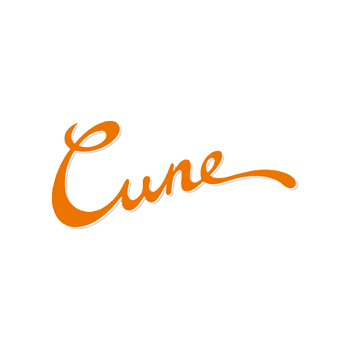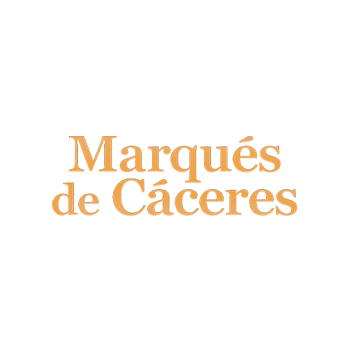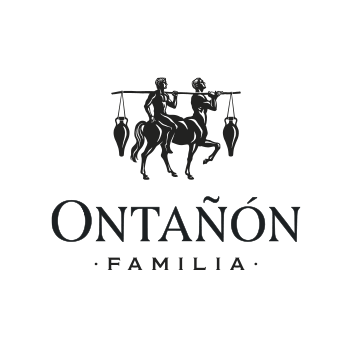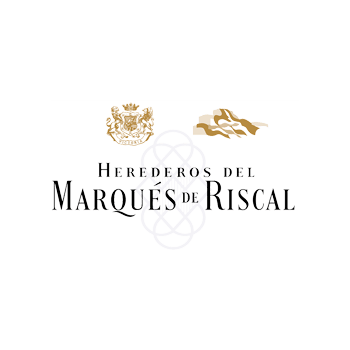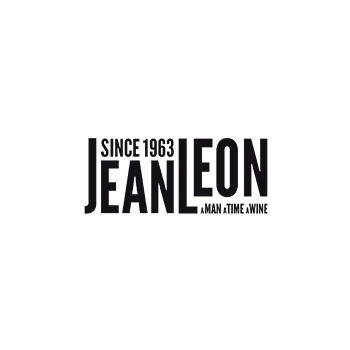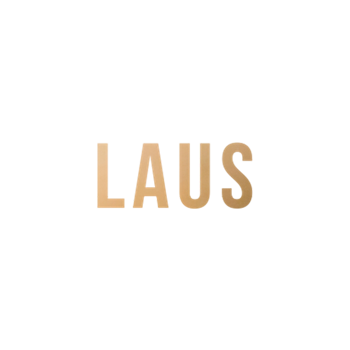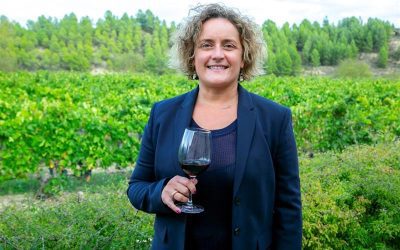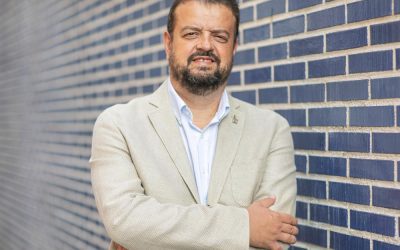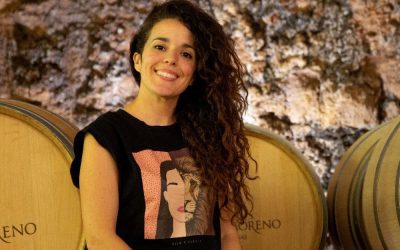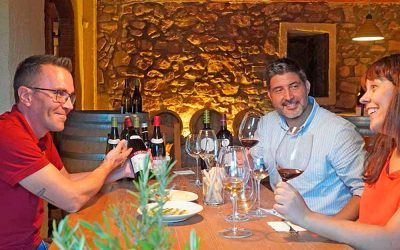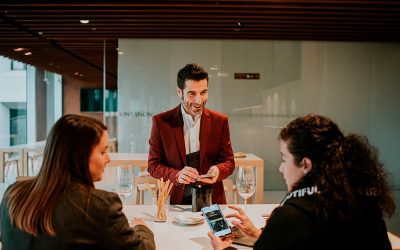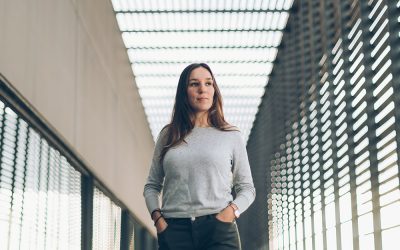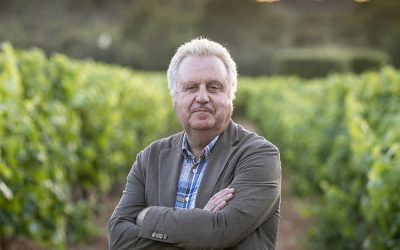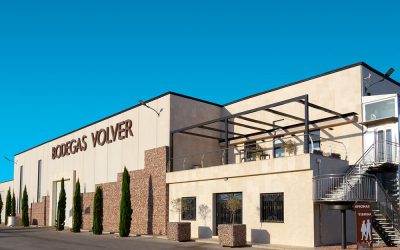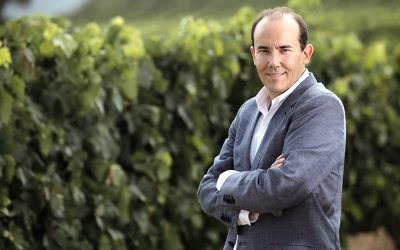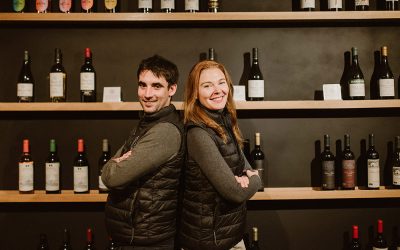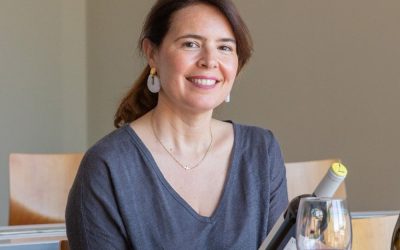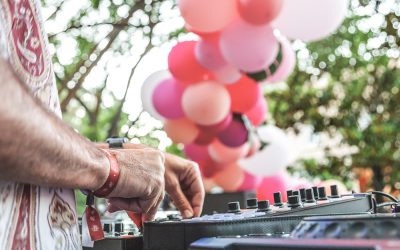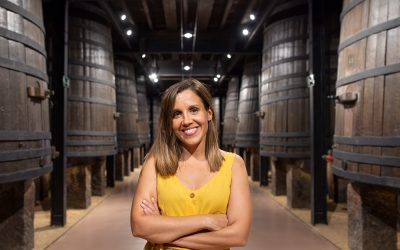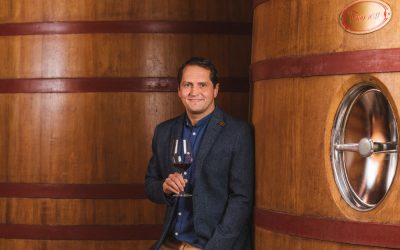What they say about us
Some of our satisfied customers
Conversations
with…
Chelo Miñana
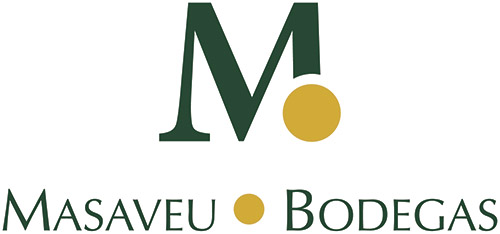
Chelo Miñana
Director of Wine Tourism at Masaveu Wineries
_
“We offer tailor-made experiences thanks to personalized digital tools.”
Although tradition plays a fundamental role in the world of winemaking, digitalisation has also been a key factor in the evolution of the sector. This is explained by Chelo Miñana, director of Wine Tourism at Masaveu Bodegas, who shares how technology has not only helped to streamline processes, but also to maintain the philosophy and values of the wineries.
“We see digitalisation as a tool and we use it, precisely, to maintain our essence,” says Chelo Miñana, highlighting that the main objective is to preserve tradition while adopting technological advances that optimise the experience of visitors and internal operations.
In departments such as wine tourism, a fundamental area for the winery, digitalisation has allowed us to streamline administrative procedures and personalise experiences. “Our objective is to dedicate ourselves body and soul to being hosts, and digitalisation allows our visitors to live a personalised experience from the moment they contact us.”
The arrival of wine tourism has been a significant change for wineries. What was initially just an activity related to winemaking has become a cross-cutting experience that involves different areas of the winery. “Not only does it have a great capacity for brand projection, but it can also capture information from our end customers, which can be crucial to building loyalty in the purchase of wine at other points of sale,” shares the director of Wine Tourism.
In the case of Masaveu Bodegas and the wineries that belong to this winery group and have wine tourism activity (Murua in DOCa. Rioja or Fillaboa in DO Rías Baixas), for Miñana, “digitalization has been a decisive and firm commitment.” In the wineries, “wine tourism is not only seen as a commercial tool, but its philosophy is based on giving visibility to all the work carried out by the team: from the work in the vineyard to the enhancement of the product.”
One of the most recent advances at Masaveu Bodegas has been the implementation of a reservation platform, which not only facilitates the management of visits, but also allows the customer experience to be personalized. “We could say that our friends have the possibility of contacting us in very diverse ways and that the more we know them, the happier we make them. If we transfer this image of everyday life to what we seek at Masaveu Bodegas, we will obtain the integration of a complete reservation platform that will allow us to offer multiple possibilities so that visiting us is an à la carte and accessible experience. Knowing and managing our clients allows us to introduce them to our universe, always with their permission and with our absolute respect for the management of databases,” explains Chelo Miñana.
By working in synergy with technology companies, Masaveu Bodegas has been able to constantly update its tools and advance quickly in the market. This collaborative approach has allowed them to identify solutions adapted to the specific needs of the wine sector, always staying at the forefront.
“We weren’t just talking about buying a ticket online, we needed a platform that would allow us to facilitate contact procedures, improve detailed information for customers, facilitate payment and diversify the offer,” explains Miñana. With these improvements, the customer experience is not only simplified, but enriched by being designed to be flexible and personalized.
Digitization has not been a disruptive process, but a tool that complements and reinforces their traditional vision of wine, becoming a key ally to offer unforgettable experiences without giving up the essence that defines them.
Raúl Gil

Raúl Gil
Director of International Trade and Marketing
_
“We want each user, from their first interaction with the website, to feel like they are starting a journey with us.”
The digital renovation of Bodegas Marqués de Cáceres marks a before and after in its connection with consumers. Raúl Gil, its director of International Trade and Marketing, describes this project as “a journey towards modernity, which maintains the balance with our tradition and puts the focus on consumers and on enjoying different moments in their own way.” This ambitious project not only reinvents the winery’s digital image, but also opens new doors to bring its history, wines and experiences to a wider audience.
The design of the new website combines freshness and elegance with a clear objective: to make each click transport the user to the universe of Marqués de Cáceres. One of the most important additions is the integration of wine tourism directly into the website. “We wanted our visitors to be able to plan and book experiences at our winery directly from the website, centralizing all our offering in one place,” explains Gil. This approach makes technology an ally for wine tourism, improving usability and making navigation clearer, more accessible and more attractive. “In addition, following the new brand architecture, we have reorganized our wines into: Genuine, Special, Gourmet and Signature,” says the director of International Trade and Marketing. With the customer at the center of the action, users can discover the magic of the winery, from its landscapes to the spirit of its wines, through “a living tool that will continue to evolve.”
Every corner of the website has been carefully created to captivate. From intuitive navigation to a renewed structure that guides the user through the wines organized according to moments and consumption styles. “We have created a space that not only reflects who we are, but evolves with us. Working hand in hand with JIG, we have sought to ensure that this website not only facilitates interaction with our brand, but also reinforces the emotional connection with our consumers,” explains Gil.
The commitment to this transformation responds to a strategic vision that seeks to be on par with a changing digital environment. For Marqués de Cáceres, “the biggest challenge has been to digitally adapt the new brand image and convey a more modern, clean and orderly aesthetic, aligned with the new times and the expectations of our consumers.” “This process involved completely redesigning the structure and content of the website, seeking a balance between functionality and visual design,” Gil confesses.
Every detail is thought out to convey the soul of the winery. The objective is not only to attract, but to connect deeply with those who discover the brand. From exploring the wines to buying a bottle with a single click, the digital experience is designed so that everything flows naturally. “Our main objective is to offer a digital experience that reflects the quality and authenticity that characterizes Bodegas Marqués de Cáceres,” says Gil. “These digital improvements help us adapt to the expectations of an increasingly demanding consumer, reinforcing our identity and ensuring that each visit to the website is the beginning of a lasting connection with our brand,” he continues.
This page is not only a window into the universe of Marqués de Cáceres; it is a meeting point between tradition and innovation, a space where technology enhances the legacy of the winery. “This project is part of a strategic and transversal change that includes our new visual identity, brand architecture, communication style, label restyling and, now, the update of the website,” highlights the director of International Trade and Marketing.
With this, Marqués de Cáceres not only modernizes its image, but also reinforces its position as an iconic brand that evolves with the times without losing its essence. “The website becomes a point of attraction for new consumers, complementing the work we have been doing for years through the different wine tourism experiences in our wineries in Cenicero,” he concludes. A journey that begins on the screen and promises to turn each interaction into an unforgettable experience.
Enviar comentarios
Resultados de traducción disponibles
Miryam León


Miryam León
Head of Marketing and Communications Department
_
“Data management is key to understanding our visitors and personalizing their experiences”
Since its founding in 1988, Bodegas David Moreno has been a benchmark for quality, deeply connected to the land, the vineyard and the family. Today, it has managed to embrace digitalisation and achieve a balance between deep-rooted tradition and modernity that is advancing by leaps and bounds. A process that, far from breaking with its essence, enriches it and extends it to new frontiers.
Miryam León, head of the Marketing and Communication department, tells us how, through the use of digital tools, the winery has managed to reach a global audience without losing the essence that characterises it. “With these solutions we can reach more people, but the soul of Bodegas David Moreno remains the same,” says Miryam León proudly. It is this connection with the roots that continues to guide their day-to-day life, from production to the experience they offer their visitors.
One of the pillars on which digitalisation has left its deepest mark is in the area of Wine Tourism. Pioneers in opening the doors of the winery to visitors from the beginning, Bodegas David Moreno has managed to transform the experience into an unforgettable and modern journey. “Our Wine Tourism department has evolved over the years, implementing tools that have facilitated both internal management and customer experience. From an Excel spreadsheet, which was how reservations were first managed, to what we have today. Currently, thanks to digitalization, we can offer the customer a more personalized and efficient experience,” explains the Marketing and Communications manager.
One of the most notable innovations has been the introduction of a self-guided tour, ‘At your own pace’, where visitors can enjoy the tour with an audio guide through their own mobile device. “Our biggest concern was acceptance among middle-aged people, but fortunately, we have seen that the process has been fluid and problem-free,” says León. “The change to digital is being very natural for everyone,” he emphasizes.
Another key aspect of this digital transformation has been its new reservation platform, which has optimized internal organization and improved the customer experience. “We have been working with a reservations centre for years and this year we opted for a change that would adapt to new tools and cutting-edge technology,” emphasises León. “Having a new reservations platform has allowed us to organise visits more efficiently, optimise times and facilitate customer reception,” she explains. This tool, explains the winery, not only improves logistics, but also allows visitors to have more autonomy when making changes to their reservations, giving them total control over their experience.
As the Marketing and Communication department states, digitalisation has been essential to further personalise its services thanks to data management, a key aspect in Bodegas David Moreno’s vision for the future. The winery understands digitalisation not as an end, but as a path in constant evolution. “We believe that collaboration with technology companies is essential. Sharing knowledge with other wineries and companies in the sector can help us move forward, while always maintaining our identity. There is still work to be done and the best news is that we are on the right track,” concludes Miryam León. A process in which they continue to advance without giving up what makes them unique: their closeness, their family essence and their authenticity.
Mariannick Garel
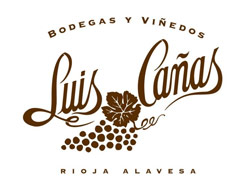

Mariannick Garel
Director of Communications, PR and Wine Tourism at Bodegas Luis Cañas
_
“Technology is not an end in itself, but a way to achieve our goals”
Digitalization is an unstoppable phenomenon that has transformed all sorts of sectors, and the world of wine is no exception. However, for companies with such a deep heritage as Bodegas Luis Cañas, the key is not in adopting technology for its own sake, but in how it can be integrated to improve processes and experiences without compromising the values that define them.
The winery stands out for its unwavering effort with tradition and respect for the family history that has guided its work over the years. “We have a strong commitment to quality and our region,” comments Mariannick Garel, Director of Communications, PR and Wine Tourism at Bodegas Luis Cañas. “Our differentiation lies in our connection with the environmental and social surroundings,” she adds, as well as ”our intention to maintain the cohesion of the territory.”
But how to ensure that products retain their authenticity in the midst of digitalization? “Technological tools do not affect our essence. They are a mere means, not an end,” explains the winery’s Communication team. “We must have our sights set on our objectives and values and choose those solutions that help us achieve them,” they assure.
Digitalization has been greeted with special caution at the winery. “The risk we were most concerned about was losing the human link with the user,” confesses Mariannick Garel. The introduction of a booking platform “has been a major change, but we have made sure that this new channel maintains the closeness with the visitor,” assures the Communication Director. “Two companies that have the same platform can make completely different use of it,” she adds.
At Bodegas Luis Cañas, digitalization has made it possible to modify traditional processes, streamlining key areas without interfering with the physical and sensory experience of the wine. “Although at first there was some fear of change, over time the team has become aware of the benefits of technology,” says Garel.
Among them, obtaining an asset that in the industry is invaluable: end-customer data. “It’s vital in a context like ours, where the product goes through many intermediaries before reaching the end consumer. Having this data gives us a unique opportunity to get to know our customers better and optimize future communication strategies,” says Garel.
Bodegas Luis Cañas has managed to integrate technology in a balanced way, maintaining its values and adapting to the new times without sacrificing quality or familiarity with its customers. They have started with key areas such as finance, management, production and wine tourism, but the process is far from over. “We are with all fronts open,” they explain, noting that digital transformation is a work in constant evolution.
Josep Llambrich
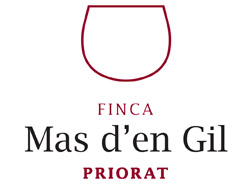

Josep Llambrich
Head of Visits in Mas d’en Gil Winery
_
“Our products preserve their artisanal essence in the digital era”
Mas d’en Gil Winery, founded in 1867, has witnessed the evolution of the wine sector over the years. The Rovira Carbonell family, the current owners, has been dedicated to preserving the legacy of this place, located in one of the highest and most airy areas in the south of the Priorat region. Her philosophy has been clear: to offer fine, elegant wines with an identity marked by the terroir, achieved through the regeneration of soils and the implementation of biodynamic methods since 2008.
Within their traditional processes, digitalization has arrived at Mas d’en Gil as a tool that helps facilitate their work, while preserving the authenticity of their wines. “We believe that our products do not lose their essence and continue to be artisanal elaborations that preserve their character,” emphasizes Josep Llambrich, head of Visits at Mas d’en Gil Winery.
Digitalization has not altered the group’s traditional systems, except in the area of wine tourism, where it has facilitated the management of reservations with the introduction of a new platform. “Having this tool helps us to speed up times when it comes to booking. In addition, we have a customer base that we can access at any time,” adds Llambrich. This platform has not only improved operational efficiency, but has also enabled the winery to maintain closer and more organized contact with its customers.
For now, Mas d’en Gil Winery is happy with its level of digitalization. “For the moment, in our case, we have made progress in the digitalization of our winery and we currently have all our digital needs covered. Maybe later on we will notice that we are missing something, but for now we are very satisfied with the incorporation of the booking platform,” Llambrich concludes.
Mas d’en Gil’s experience shows that it is possible to integrate digital tools in an established sector without losing the authenticity and quality that characterize its products. This balance between the traditional and the technological allows the winery to remain at the forefront of innovation without renouncing its roots, thus offering a unique experience to both its visitors and wine lovers.
Jesús Arechavaleta
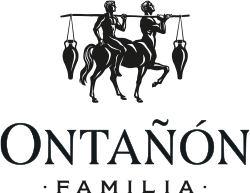

Jesús Arechavaleta
Responsable de Enoturismo, Ontañón Familia
_
“It is a feeling of mutual trust: you tell us your tastes and we offer you what you are looking for.”
In the fusion of wine culture and tourism, wineries recognize the importance of providing unique experiences that adapt to the changing demands of visitors. For this reason, Wine Tourism departments are increasingly committed to the implementation of digital tools as part of their continuous modernization and adaptation to the demands of wine lovers. An example of this trend is the innovative approach of Bodegas Ontañón, which has integrated into its Wine Temple different tools such as digital tasting in its wine tourism offer.
Recognizing the omnipresence of mobile phones in our daily lives, the winery has taken advantage of these devices to immerse tourists in a sensory journey through a web platform that energizes and digitalizes the visit. Through it, they can test their knowledge about wine intuitively, while being guided through the different phases of the tasting, while talking about their tastes and preferences. “One of the keys is to increase interest in all aspects of the world of wine, giving all possible prominence to aromas and flavors,” explains Jesús Arechavaleta, head of Wine Tourism at Ontañón Familia.
“We call our way of understanding the visit to the winery ‘wine cult’ because we develop all the activities around the sensory pleasures it offers us. That special sensitivity has become our house trademark, in the way we relate and interact with the people who come to the winery. Little by little, we are introducing them to the dialectic that we propose to them: believers, practitioners and devotees,” he continues. The digital tasting is “an immersive but very rewarding and simple experience that generates a very good vibe instantly, which makes visitors identify very quickly with the little adventure that we propose,” says Arechavaleta.
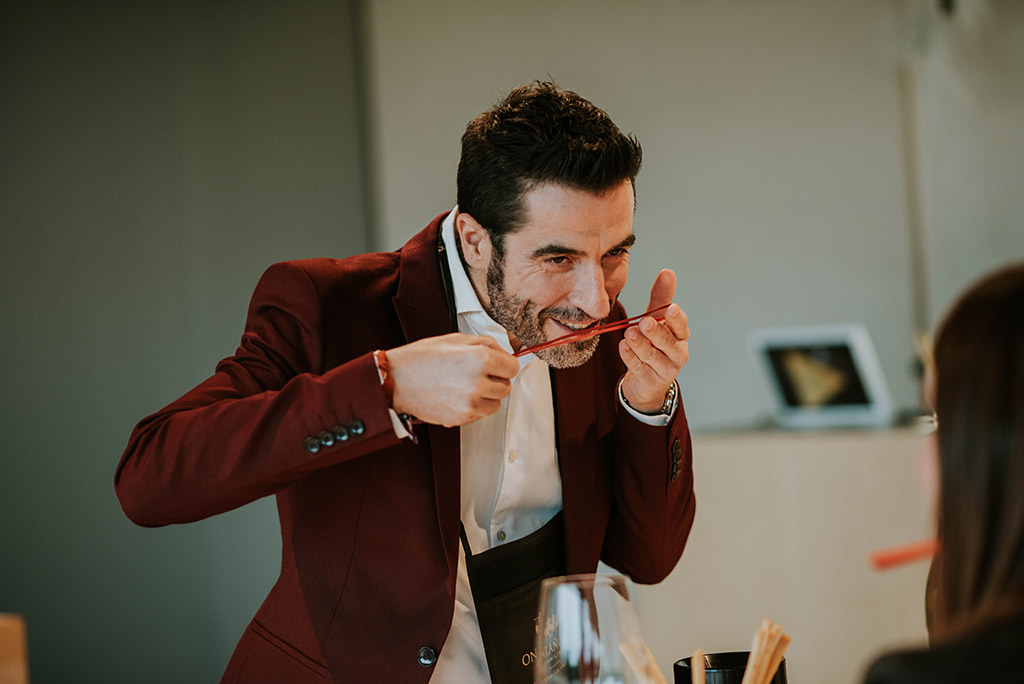

As a tool to strengthen the bond between the winery and customers, the novelty is perceived as “a totally different experience from those made on other visits,” which allows the winery to “create a good memory of the brand and the experience.” in the Temple of Wine.” Although, as with any innovation, some difficulties have arisen, such as initial resistance from those less familiar with the technology or connectivity problems that, in the vast majority of cases, have been easily overcome by the experience it offers. “Normally, people who are more reluctant to use mobile phones tend to show less interest, but after doing the digital tasting, they comment that they loved it,” highlights the head of the Wine Tourism department at Ontañón Familia.
The integration of technology in wine tourism not only enriches the visit, but also improves it through various nuances and turns it into an experience worth sharing. The client has fun and learns in a simple way with the help of technology, helping each activity to be different and for visitors to share it on social networks on a very regular basis. An approach that not only promises to improve the customer experience, but also continues to move towards an increasingly technological and personalized wine tourism, always with the values of wine as the axis of its enjoyment.
Natalia Royo
Natalia Royo
Communications Manager at ENATE Group
_
“Digitalization has brought us closer to our customers”
Within ENATE Group’s strategy, the concept of quality does not stop at wine. Its philosophy seeks to distinguish itself through its marriage with contemporary art, the essence of its character and hallmark. The personality of this museum winery based in Huesca (DO Somontano) has been forged over the years through the adaptation of its philosophy and values to the latest trends, embracing the digital revolution and including emerging technologies in its processes and services.
Digitalization has always made up an important part of the winery’s strategy, but it wasn’t until 2020 that ENATE saw the need to evolve by leaps and bounds. “The updating of processes accelerated mainly with covid. There was a medium-term strategic plan for digitalization, which was activated in just a few months”, explains Natalia Royo, head of Communications at ENATE Group.
Focusing on the client, the winery set the objective of “professionalizing its departments and improving customer service”, Royo emphasizes. “This has been the case of wine tourism”, he assures, for which ENATE has made an important effort to offer an experience in line with the needs of its visitors. “Together with the technology company JIG, we sought an accessible and practical tool for our tourists, while at the same time automating certain processes”, she says.
The winery has a booking platform that allows, in a fast and integrated way, to facilitate communication processes, improve service management and automatically generate valuable data on customer profiles. “This tool has enabled us to automate certain parts of the process and optimize specific functions, with the aim of becoming more operational. Data management is very important to us, as it allows us to measure and evaluate opportunities for improvement or make realistic analyses of the situation”, says Royo.
Despite undergoing numerous changes in its working method, for ENATE Group its philosophy remains intact: “Digitalization has made it easier for us to improve certain parts of the process, but always maintaining our essence. It has been a process of rapid change, but the team was prepared for it, so it has allowed us to move forward in a systematic and simple way. For the customer, it has just been a way to reach us in a more accessible way and with more options.”
The digitization of wineries emerges as a continuous journey, where innovation and adaptation are essential to fully take advantage of the opportunities that new tools bring to the wine industry. “Technology is very changeable and, moreover, those changes happen quickly. The challenge is to be able to keep up to date and identify our needs to be able to adapt to the new reality”, concludes Royo, who believes in the need to identify opportunities and collaborate to create a digitized, efficient and rigorous sector that is up to the demands of each moment.
Pedro Ferrer


Pedro Ferrer
President
Ferrer Wines
_
“Digitalization is a revolution that requires time and knowledge”
Wineries enjoy being artisanal companies, rooted in tradition and the heritage of the land they work. A philosophy that also shapes the origin of Ferrer Wines, whose cradle is in one of the oldest wineries in the wine sector in Spain, in the family estate La Freixeneda, founded in 1861. This firm was started by Pedro Ferrer Noguer when he acquired four emblematic wineries belonging to the Freixenet Group: Valdubón (Ribera del Duero), Orube (Rioja), Vionta (Rías Baixas) and Finca Ferrer (Valle de Uco, Argentina).
Throughout its long history, Ferrer Wines has kept its eyes on the future, preserving its essence and adapting to the new needs of the digital world. In this interest in joining the advances of the sector, the group continues transmitting its love and respect for the region, making wines that express the essence of variety, terroir and climate. The adaptation of the wineries to a more updated reality has been crucial to experience the growth linked to new technologies.
“Digitalization is a real revolution that requires time and knowledge”, says Pedro Ferrer Noguer, president of Ferrer Wines. “Traditional processes have become obsolete, being modified by new trends and affecting, to a greater extent, the most recently created departments. So we have set ourselves an ambitious challenge: to streamline all our processes thanks to digital technology.”
However, ensuring that wineries do not lose their character by going digital is one of the great challenges facing the companies themselves. “In our case, both promotional communication and customer service focus on transmitting our values and philosophy, which have a long historical trajectory”, Ferrer stresses. “This is something that we are not going to leave aside, but rather we are going to improve even more. By being more agile and having access to more data to analyze and understand, we will be able to enhance and enrich our identity”, he says.
igitalization has redefined the work within wineries, impacting data management and analysis and challenging traditional processes. A move that for Ferrer Wines has not been complicated, as they have a “highly motivated team that understands and embraces innovation”. On the other hand, in the field of wine tourism they have managed to sell their experiences through “the innovative JIG platform”, which “has not only provided greater order and control, but has opened the doors to an ocean of valuable data”. Data that comes from digital bookings and that is the key to building customer loyalty beyond the winery, “turning them into true ambassadors of our wines from the comfort of their homes”.
What is clear is that digitalization is advancing day by day, being an opportunity and an obligation for the exchange of knowledge and the creation of new synergies between wineries and technology companies. Ferrer Wines is working on the transformation of its administrative and invoicing part, as well as on carrying out exhaustive monitoring through digital marketing and the intention of automating its online sales conversion tunnel as much as possible. A forward bet that will continue to drive digital transformation and meet the new needs of the sector.
Bodegas Volver
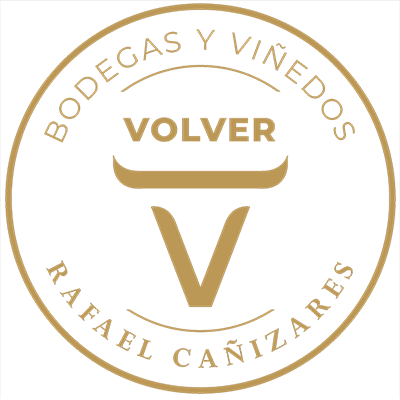

Bodegas Volver
Wine Tourism Team
_
“Digitalization enhances our tradition”
Bodegas Volver was born in 2004 among centuries-old vineyards and deep-rooted traditions from the hand of winegrower Rafael Cañizares. Its native vines, cultivated in a sustainable way and with minimal intervention are the very essence of this winery in Alicante. “The values we transmit are passion, culture and tradition”, highlights the winery’s wine tourism team.
Bodegas Volver not only honors history and culture, it also hugs modernity, joining the agility of the digital transformation of its processes. Its Wine Tourism team highlights the potential of these advances, which have allowed them to improve key aspects of the winery without compromising the work philosophy rooted in decades of experiences. “Digitalization helps us in terms of marketing, ‘online’ sales and impact, while being fully compatible with tradition and our way of farming”, continue. For the winery, it is important to keep working along the same lines as its previous generations. “Although machinery and technology have evolved, they are tools that we use as an aid and support, never as a replacement for our way of working and processing our grapes”, they explain.
The digitalization of the winemaking sector is a crucial issue today. The integration of digital solutions that facilitate, optimize and automate processes is becoming increasingly important in the wine industry. New departments have also been developed, which contribute to enriching the customer experience. “The Wine Tourism department has been a strong support in our communication. In this winery sector, clients want to learn about the project from the inside: get to know the winery, the way our wines are made, taste them…”, they confess.
To this end, the winery has a wine tourism booking platform, which has enabled them to facilitate communication and service management processes, while automatically generating valuable data on customer profiles. “The booking platform helps us to better manage the visits, having the information centralized and computerized. For the visitor it is also an advantage, as he can see the availability and make his own reservation from the web”, share the Enoturismo managers.
For the winery, digitalization has become an ally to remain at the forefront without losing the essence and tradition that characterize its products. Their vision of integrating technology as a support tool has allowed them to modernize their operations without compromising quality or the values that have defined them for decades. An example that highlights the transformative power of digitalization in preserving the authenticity of industries rooted in tradition while fostering innovation and growth.
Santiago Frías
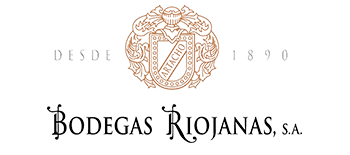

Santiago Frías
President
Bodegas Riojanas
_
“We create moments of happiness by bringing together tradition and innovation”
The digitalization of the wine sector has unlocked the door to great opportunities for growth. Wineries have moved towards new formulas by renewing their processes and services, boosting their growth and competitiveness and reducing their environmental footprint. Bodegas Riojanas, a family-owned company founded in 1890, is working to be part of this digital revolution without giving up the essence of its more than 130 years of history.
“Our goal is to create moments of shared happiness for customers by making unique, close, quality, environmentally and economically sustainable wines, combining tradition and innovation at all times”, says Santiago Frías, president of the Cenicero-based company.
The integration of digital technology in different areas entails a cultural and logistical change in the working method of the companies. In the case of Bodegas Riojanas, since its beginnings, the transformation began to develop gradually and naturally. “The first step was taken in 2004 with the introduction of an ERP – enterprise resource planning” recalls Frías. This is a management system that allows the traceability of all the processes of a company, making it possible to plan and optimize resources.
Frías underlines the importance of computerizing the information that was previously reflected on paper, a process that for the winery “was more tedious than drastic”, he says. A few years later, the winery incorporated its label reader in order to facilitate this task. “Through the smart guns, the data was reported directly to the ERP. The rest of the changes were implemented gradually over the years, some complementary to the ERP and others trying to meet the needs that arose over time”.
The winery has also developed digital improvements in the barrel cleaning system, wine tourism reservation management, server migration, vineyard control and the production line, among others. “One of the main changes has been the incorporation of an IT expert. With his help, we are now able to analyze and monitor processes, optimizing and improving times and results, eliminating duplication of tasks and reducing costs and human errors”.
The winery highlights the enormous reduction in human intervention as new technological measures are incorporated, although, for its managers, the work of its professionals “will always continue to be necessary”. “Throughout the process of change, we have relied on highly qualified human resources, allowing the essence and tradition to remain intact”, he says.
Digital helps to convert processes into data, with customer experience being a very important aspect to measure the evolution of changes. “It is difficult for a client to perceive a noticeable improvement in a short period of time, since the advances occur continuously and the company’s adaptation is gradual”, the firm points out.
In the case of Bodegas Riojanas, the effort has been focused on improving order processing and response, speed of service, personalization and customer service. “It is true that it has required a great effort of adaptation on the part of the winery’s professionals. When you have been working with a certain method for years, there is a certain resistance to change. Fortunately, in the end we have always succeeded”, confesses its representative.
In recent years, companies in the wine sector have detected certain widespread technological needs: it is necessary to know the status of their vineyards in real time, to control the bottling line and to improve digital indicators.
Together with cybersecurity, wine tourism and the importance of data have also occupied one of the main places in these improvement programs. For the winery, collaboration between companies in the digital transformation is vital: “We have worked with companies such as JIG in the web, wine tourism and data management areas and with other technology providers in the fields of sustainability, eco-design, implementation of the new ERP and in the development of barcode readers”.
Creating a collaborative network produces a multiplier effect that benefits both wineries and technology companies. Therefore, for Bodegas Riojanas it is essential to move forward together to obtain results that guarantee greater adaptation and dynamization of the sector.
Eduardo Saracibar y Elizabete de Jesús


Eduardo Saracibar y Elizabete de Jesús
Wine Tourism Team
Bodegas Ollauri
_
“Digitalization has allowed us to build customer loyalty and enrich their experience”
The conservation and maintenance of heritage are key pieces in the philosophy of Bodegas Ollauri. Being able to transmit these values not only by presenting its wines, but also by preserving its historical legacy is one of the driving forces of the group, which today also coexists with the advance of digitalization and technology.
“The new digital solutions have allowed us to develop a customer strategy based on loyalty through QR, online advantages or our wine club, enriching the user experienc”, highlights the Wine Tourism team.
Both Eduardo Saracibar and Elizabete de Jesús believe that the convergence of the two worlds, tradition and modernity, helps to “get closer to the customer, understand their needs and provide a quality service”. From the moment they choose Conde de los Andes, the winery seeks to establish close contact with visitors, an objective they have continued to maintain by incorporating new tools into their work processes. “Our reservation center gives us speed and efficiency in the management of reservations and modifications, saving time that we can dedicate to improving the user experience”, they emphasize.
Wineries’ procedures are not being modified, but are trying to adapt to the needs required by digitalization. The collection and management of information is vital to know markets, trends, customers and consumers. “We have carried out the implementation of a new ERP, CRM, we use Big Data or AI to obtain informatio”, explains the team. “In addition, the development of the reservation center has had a particular impact on the department. It has allowed us to be more agile in reservations, prepare personalized visits, have flexibility to make modifications in real time and adapt our campaigns and promotions by providing us with strategic data reporting for decision making”, continue.
The journey towards digital transformation for Bodegas Ollauri is evolving fast: “It is a constant synergy that is intertwined with the day-to-day life of each person.” “The speed at which technology advances is a reflection of a constantly changing society. However, we see this dynamic as an opportunity, adapting from a proactive approach to the new ways of interacting and operating”, comment those responsible for Wine Tourism at Bodegas Ollauri.
“In our vision, the importance of the end customer is paramount and technology and digitalization are a key means to achieve our goals”, they conclude.
Maite Soria
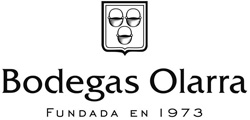

Maite Soria
Marketing and Direct Sales Manager
Bodegas Olarra
_
“In Olarra we are sure about where we come from and where we are going”
Behind a bottle of wine there is a careful traditional work of conservation and treatment of the vineyards, grape harvesting and elaboration and commercialization of the product. But there is also a great process of transformation and adaptation to the digital era, continuous research and the proposal of innovative initiatives to improve the customer experience.
Bodegas Olarra is committed to the design of a strategy that advocates the issues of the present with a future perspective. “We are a family winery, which this year celebrates its 50th anniversary. The way we work has changed from the beginning, especially thanks to the modernization of the winemaking methods and information systems from the vineyard to the distribution of the wines” explains Maite Soria, head of Marketing and Direct Sales of the winery.
Digitalization has marked a turning point in the sector, opening up new scenarios and creating a multitude of new possibilities. Without losing sight of the land, the winemaking heritage and sustainable development, Bodegas Olarra believes in naturalness around wine and works to make a quiet evolution that maintains the “pioneering and innovative” spirit they received from previous generations. “We are very clear about where we come from and where we are going. We make wine for people and we think of them when we make it”, he emphasizes.
In a context of complexity and variability, the implementation of digital advances has played a leading role in the improvement strategy of the wine sector. Bodegas Olarra has joined this transformation, through a moderate process, incorporating into its daily operations those advances that have been needed at each moment. “From the beginning we have been using programs to help business management, but it was not until 2000, with the turn of the century, when we developed our own digital management environment”.
From vineyard management with real-time information on the situation of the vineyard to winemaking with the help of pioneering technology, through marketing or warehouse management, Bodegas Olarra is advancing towards the new present day. “Digitalization has crept into every area of our winery’s life to help us to do our work better”, says Soria. “We believe in advances as a tool for improvement, so they have always been implemented when necessary and in a very personalized way. This has meant that the changes have been well received and used”, he concludes.
“We make wine for people and we think of them when we elaborate it”.
But how can you guarantee that your products do not lose their philosophy and character? For the head of the Marketing and Direct Sales department at Bodegas Olarra, “digital advances only help and improve any process, they do not replace”. “It is the information that digitalization gives you that allows you to make better decisions, save time and money and optimize available resources, reflected in our wines”, assures Soria.
But digital changes have not only affected winemaking processes, it has also changed the customer experience. “From online purchasing to booking visits, for example, are processes that today cannot be conceived without the immediacy that customers seek in their relationships with companies. Despite this, we continue to maintain that line of direct contact with them so that they know we are available”, he explains.
This new way of working has allowed us to establish collaborations and synergies with other wineries and technology companies. “We work with companies in the sector that we trust and help us take the necessary steps to move forward. Progress is shared and democratized. In the wineries we are beginning to be aware that together we add up to much more”.
For Bodegas Olarra, digitalization is nothing more than better and more abundant information, more efficient processes and, in short, better decision making, perfecting any area in which it is applied.
Mamen Arias Camisón



Mamen Arias Camisón
Marketing and Communication Manager
Bodegas Marqués de Cáceres
_
“Marqués de Cáceres is currently working on a cross-cutting project with a strong online push”
Wine is once again, one more year, the big event of the summer at Bodegas Marqués de Cáceres. The famous Wine Fest party will set the evening of this first weekend of July. The entrance to the festival, which this year seeks to pay tribute to the brand’s young wines, includes a welcome drink and two tapas for the guests.
At the Rosé Party that the winery has organized for this occasion, attendees will be able to enjoy live music, food trucks, wine bar and a large chill out area set up for the party. “This year, we have completed the capacity a week before the party and many people who wanted to come have been left without their tickets”, says Mamen Arias-Camisón, manager of the Marketing and Communication department. “The reception has been spectacular.
Marqués de Cáceres seeks to “transmit passion” in everything they do and “remember to enjoy everything in everyday life: people, company and the moment”. “Wine and its culture is, at the end of the day, just that”, Arias-Camisón assures. “We want to open the doors of our winery to all those who want to discover first-hand the essence of our brand: surprising, close and made to enjoy”, says the manager.
The event is a very exciting opportunity for the Marqués de Cáceres team, from the previous organization to the day of the party. “It serves to bring us closer to a younger consumer segment, which is beginning to discover the world of wine and is attracted by more experiential and different experiences”, he shares.
Digital transformation greatly affects wine tourism, which is why wineries like Marqués de Cáceres are working with companies and technological tools to improve their experiences. This is what they have decided for Wine Fest, an event that has counted on the planning of a careful promotional campaign with a special online focus. “We have sought to obtain media presence at local and regional level, carrying out, in addition, a specific paid media campaign in social networks”, says Arias-Camisón. “We have also incorporated a new wine tourism reservation platform with the aim of optimizing the management of the services we offer our visitors and capitalizing on the valuable information they provide us”, he adds.
Social networks are very direct means of communication to reach the selected target and get closer to the potential audience. “The opportunities offered by these platforms allow us to reach a much wider audience and generate greater interaction and impact”, say the winery. “They are very useful tools to increase the visibility of our brand and connect more and better with our consumers”, they add.
Nowadays, the image we project on the Internet is our brand’s showcase to the digital world. “Since the winery’s first website was launched, its goal was to optimize its positioning and increase traffic”, says Arias-Camisón. Therefore, one of the main needs they experienced was the creation of an attractive, responsive design, with relevant content and a user experience that was carefully designed and optimized for SEO as a way to generate visibility and attraction, “but also loyalty”. “Currently, we continue to work to create a transversal project with an important push to the online part, which is becoming more and more important every day”, says the manager.
Digitalization in wineries involves different points of improvement, both in their internal and external processes. “These tools make it easier for us to unify the diverse experiences within the same space, bringing the information and the booking procedure closer to the users. In addition, it simplifies task management for us as a team”, he emphasizes.
“The relationship with our customers and consumers is also improving, by better handling their contact and capitalizing on the information they provide us with about their tastes and preferences in order to offer them products and services that are of interest to them”, he continues. “The goal is to generate a high-value experience in our winery, but also to maintain that contact when they leave our facilities”, Arias-Camisón concludes.
Elena Pilo


Elena Pilo
Director of Wine Tourism and Public Relations
Bodegas Franco-Españolas
_
“Data is the gold of the 21st century”
The ‘Summer Cinema’ cycle of Bodegas Franco-Españolas ends its ninth edition, an opportunity that has managed to unite, once again, wine and culture on the same stage. More than 1,400 attendees have been able to enjoy the movie nights, with great hits such as ‘Red Telephone’, ‘Belle Époque’ or ‘The Big Lebowski’.
“For us, this initiative means recovering a classic of Spanish summers”, highlights Elena Pilo, director of Wine Tourism and Public Relations at Bodegas Franco-Españolas. “We have managed to contemporize the popular cinema of yesteryear and bring glamour through our Bordón and Diamante wines and gastronomic service”, she explains.
Without losing sight of the respect for traditional values such as tradition and family, Bodegas Franco-Españolas continues to bet on technological innovation, adding the gastrobar tool to its wine tourism events. “We developed it, together with our technological partner JIG, in the midst of the COVID-19 crisis in order to respond to the health restrictions”, Pilo points out.
“The tourism sector is terribly sensitive and we needed to adapt to this new reality in an agile way”, he says. “The use of the tool was an unquestionable success: it facilitated the viability of the cultural agenda at a very complex time and allowed us to continue integrating wine into our experiences, streamlining the service and avoiding waits”, she says.
Currently, this tool, together with the wine tourism reservation management platform, continues to be one of the most important elements of events such as the ‘Summer Cinema’ series, allowing us to provide a service for more than 400 people in an average of 3.5 minutes per order. Its application reduces errors in orders and facilitates decision making based on data and consumption moments, thus reducing resources and improving the economic efficiency of the activity. During the film sessions in July, Bodegas Franco-Españolas recorded around 600 orders placed through the gastrobar tool, uncorking a total of 550 bottles of Bordón and Diamante wine and managing to donate an amount of 1,000 euros to the Food Bank of La Rioja.
The winery started making culture in 2012, being a pioneer in its offer and maintaining a broad and continuity agenda, focused, at all times, on the diversity of experiences. A tourist activity that considers visitor information an indispensable factor for its development. “Data is the gold of the 21st century”, assures Pilo.
“We believe that tourism has a triple return for the wine business: economic, image and brand positioning and the generation of enriched data”, he continues. “This information allows us to map customer behavior and understand what kind of communication we want to have with them and the pace they need”, summarizes the director of Enoturismo.
These digital solutions have increased the winery’s tourism sales by 34 percent. “Today we sell 85 percent of our tourism services through the online channel”, says Pilo. Its implementation offers freedom to the consumer, facilitating access to services and favoring conversion. “The customer is not forced to call or wait in queues and we can work predictively”, she reports.
The manager highlights the need to work collaboratively with other companies as a window of opportunity to continue participating in the development and updating of the sector. “Maintaining the level of competitiveness is everyone’s responsibility”, says the director of Wine Tourism and Public Relations at Bodegas Franco-Españolas.
Carlos Ferreiro
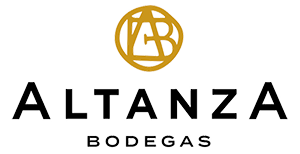

Carlos Ferreiro
Technical director and oenologist at Bodegas Altanza
_
” We used to be guided by sensations, now we have more information”
Digitalization in the wine sector has caused the reorientation of wineries towards the application of new technologies. Many of the analog processes have needed to be updated, transforming traditional methodology into more innovative procedures. “In the beginning, we were guided mostly by sensations and by exhaustive analysis of the state of the vineyard in a more visual and manual way. We studied whether the plant was balanced, whether it had the necessary vigor, and that was what marked the times in all the processes”, explains Carlos Ferreiro, technical director and winemaker at Bodegas Altanza.
The winery was created in 1998 by a group of wine-loving friends, some with extensive experience in the winemaking sector. Preserving its close-knit culture, it has managed to adapt to digitalization to meet the needs of the market. “Our philosophy has always contained innovation and growth within our fundamental pillars. We have always sought to exalt the values of the DOCa Rioja”, highlights Ferreiro.
“Our philosophy has always contained innovation and growth within our fundamental pillars. We have always sought to exalt the values of the DOCa Rioja”.
Bodegas Altanza has worked progressively to incorporate the various transformative elements in all its sectors, in order to improve inventory control and sales, monitor the production process and automate certain tasks. “Apart from the relevant investments in developing the Digital Marketing Department, we have bet on the continuous growth of our online store, continuously adapting it to the needs of our customers”, the expert continues. “We have also implemented an online visit management engine that facilitates the organization of all reservations related to wine tourism”, he adds.
Bodegas Altanza has also developed a comprehensive R+D+I sustainability plan, focused on creating a precision viticulture system, incorporating dendrometers to see the physiological state of the vine and humidity probes. On the other hand, aerial monitoring is carried out for zoning, also counting on a system of calicatas that show the composition, root system and nutrients of the soil. “All this is recorded and generates very valuable information for us to make informed decisions and achieve excellent quality levels”, he adds.
The adaptation to this new reality has been progressive: “We are very grateful to have great professionals in the sector who are open to new changes and challenges. We are also very pleased to have developed a good loyalty network with our customers. There are still many challenges to continue working on: production, bottle-to-bottle control, temperature probes, quality and traceability, as well as digital marketing, online sales and the use of data analysis tools.
To this end, the sector needs a joint collaboration between wineries and technology companies to speed up this digitization process. “Times are different now. All processes, especially everything related to online sales and management of social networks, require immediacy and response times that have nothing to do with the winemaking and aging times”, Ferreiro points out. “For this reason, we have different collaboration agreements that allow us to work hand in hand to share our product, the result of the effort and knowledge of all the people who are part of their processes”, he concludes.
You are our best letter of introduction
Tell us your story and join our success story page.
Solicita
una prueba
No pierdas la oportunidad de dar el primer paso. Descubre cómo nuestra plataforma puede transformar el enoturismo de tu bodega.
Completa el formulario a continuación y nos pondremos en contacto contigo lo antes posible.
Apply for a trial
Don’t miss the chance to take the first step. Discover how our platform can transform your winery’s enotourism.
Fill out the form below and we will get back to you as soon as possible.
